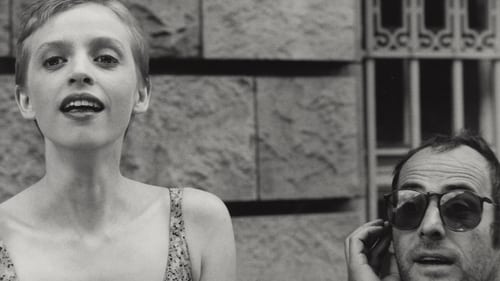Brooms (1996)
장르 :
상영시간 : 16분
연출 : Luke Cresswell, Steve McNicholas
시놉시스
A single street sweeper faces the odorous task of cleaning up the city market:a motley selection of other, more idiosyncratic street cleaners join him as his sweeping transforms into a dynamic celebration of rhythm. Loosely based upon the opening sequence of the UK percussion show, STOMP.

Cab Calloway performs at the Cotton Club before he takes his friends down to Harlem for a jitterbug party.

In the first entry of this series, the show open with a troupe of dancing chorus girls getting a salute from crossed-eyed Ben Turpin. Then the master of ceremonies, Fredric March, brings on the various acts, starting with a pre-teen Mitzi Green), dressed as an adult and singing "Was That the Human Thing to Do?" , followed by Ginger Rogers and Jack Oakie singing-and-dancing to "The Girl Who Used to be You." Then the Three Brox Sisters do a triple imitation of Marlene Dietrich singing 'Falling in Love Again." 'Jack Duffy' does a drunken hillbilly bit involving a lamp post, the the finale has Eddie Peabody, playing a banjo for some chorus girls on a pedestal.

Profiles Roy Smeck, a former vaudeville star known as "The Wizard of the Strings" because of his virtuoso talents on the guitar, banjo, ukelele and Hawaiian guitar, and who is shown to be still active, in his mid-80s, teaching students and giving occasional public performances.

Anna lives in her Mum's garden shed making videos with her thumbs. Her Mum wants her to come out but Anna doesn't want to.

The subject of this historical drama is a splintering Berlin in the years of 1948 and 1949. Played against the backdrop of social upheaval, the characters in the drama come to epitomize the best and worst of each pole of the political sphere. A 17-year-old hoodlum by the name of Gladow works hand-in-glove with a local white-collar criminal to rob and pillage every day and night, defying capture. While he and his gang of thugs are terrorizing the people of Berlin, the Soviets are trying to make the blockade of their region of control impermeable. The future casts long shadows over the drama, as Berlin's problems take the shape of times to come.

A boy's childhood scars his life.

Johnny YesNo – Redux reunites Cabaret Voltaire and Peter Care almost 30 years later with a completely new cast, a relocation to LA and an entirely new soundtrack remixed by Richard H. Kirk, the film has lost none of its hallucinatory power. The short goes deep into the structure of Peter Care’s original film and the Cabaret Voltaire tracks used in connection with it. What emerges is as much a juxtaposition of times and places as sights and sounds. The tale changes in the retelling, but that change now seems to be taking place on a molecular level. Richard H Kirk has reconfigured the film’s soundtrack, giving the proceedings an ominous sense of something slowly sliding into view from afar, glimpsed out of the corner of the eye.

Popeye's nephews have been practicing their music and are getting good, but it's bedtime. After Popeye puts them to bed, they discover that many of the things in their bedroom can also be used to make music. And they are also blessed with an uncanny ability to appear to sleep every time Popeye comes to check on them.

A lesbian in midlife crisis acts on her desire to escape the day to day routine only to find disappointment instead of that absolute bliss she hoped for.

Calligraphy on water. The first joint work of director Peter Greenaway and composer David Lang.

Love You till Tuesday was a promotional film designed to showcase the talents of David Bowie, made in 1969. The film was the latest attempt by his manager, Kenneth Pitt, to bring Bowie to a wider audience. Pitt had undertaken the film after a suggestion by Gunther Schnedier, producer of German TV show '4-3-2-1 Musik Für Junge Leute' for the ZDF network.

A proper Edwardian lady patiently endures the ever-increasing disruption to her quiet household when her Truelove gives her all the items from the song "The Twelve Days of Christmas."

It is sunset in a mountain landscape. An orchestra and a choir, along with a large group of adolescents who act as "living-music-stands", are filmed as they play the first part of Mahler’s 8th Symphony. The musicians gradually begin to move in a precise choreography, led by their living-music-stands. As these movements are executed, disparate groups of musicians, singers, and living-music-stands begin to disappear along with the sounds that they emit. The music progressively becomes a sound object captured in the course of its own erosion, which corresponds to the slow dissolution of the landscape’s visibility due to the setting sun. Ultimately, the music as a sound object and the landscape as a visual object become identical, all while being completely transformed in regard to the starting configuration. Thus, in TRENTO SYMPHONIA, the landscape becomes a point of convergence between contemplation, correspondence, and imagination.

Drone mounted cameras fly around capturing people in the act... of love.

Fidencio, an old violinist, embarks on a search for the members of his old orchestra in order to receive his son. When life falls silent, music reunites us.

Brazil. Historically Pernambuco state in the country’s northeast was characterised agriculturally by the sugarcane industry. Today there is a new sector in the economy: various evangelical Christian groups are on the rise. The mantra of the evangelicals, who have gained an ever-increasing influence in Brazilian society over the past years, is the attainment of improvements in one’s personal and economic situations through adherence to an extreme religious practice. In Brazil the evangelicals have established themselves as a growing political power over the past years. They control segments of the media and preach hate and intolerance towards homosexuality and other creeds. HOLY TREMOR focuses on a young generation of priests, producers and singers who hail from a rural area and make gospel music. Wagner and de Burca take into account the environment of the protagonists in order to make ethics, morality and life visible in an aesthetic agglomeration.

Four nights in Caracas. A documentary essay about chaos and civilization.

The story of the great German composer, from his childhood through his great triumphs in orchestral and operatic music.

The great Polish opera diva Maria Foltyn created her greatest performance in Stanislaw Moniuszkos Halka, with which she toured worldwide - she was applauded by Stalin and admired by Castro. Today, when she is losing her voice, she has decided to give way to her successor. The film Viva Maria! is a tale of passion, sacrifice and devotion, and is an extraordinary story of passing down a voice.




